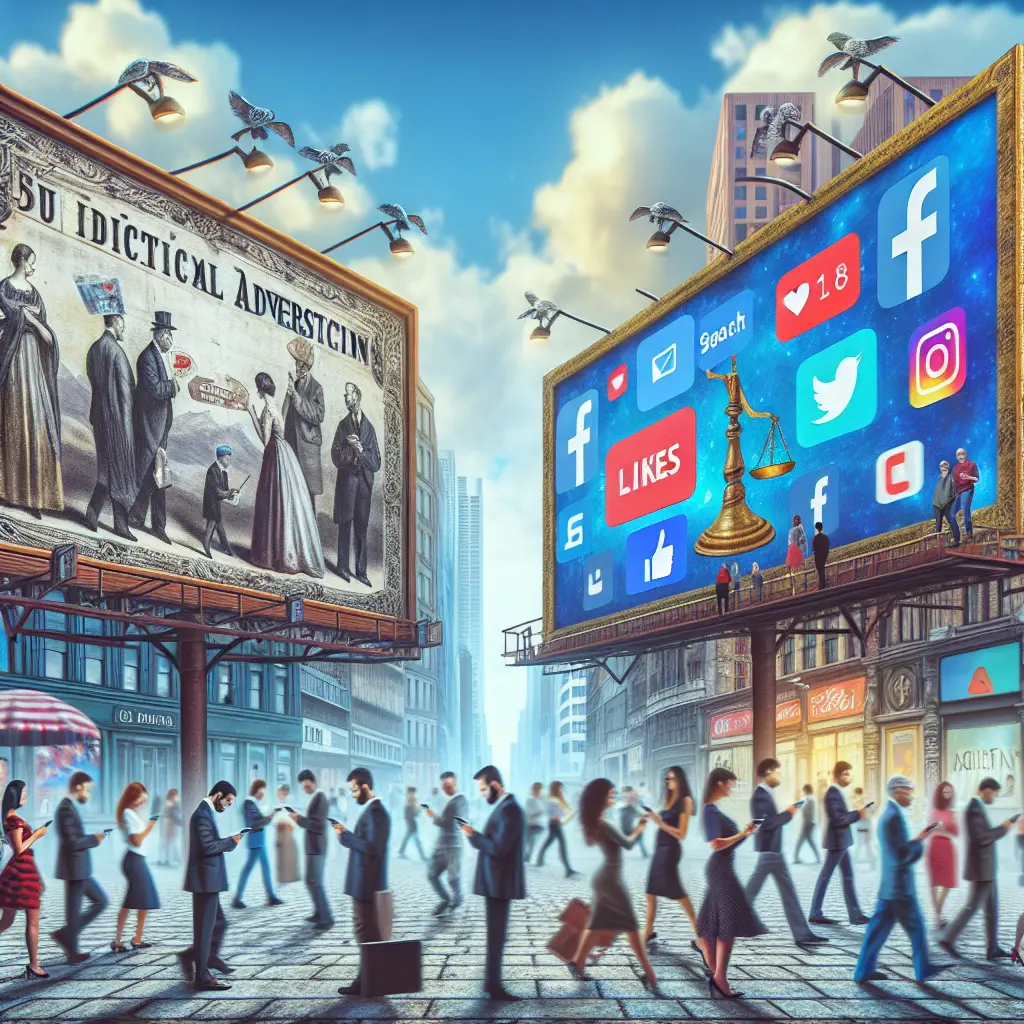
The landscape of advertising is in a constant flux, and nowhere is this more apparent than in the realm of social media. As digital platforms evolve, so too do the strategies marketers employ to reach consumers. The recent shift towards a more integrated social media approach has fundamentally altered the way brands interact with their audiences, bringing both challenges and opportunities.
The Paradigm Shift in Advertising Strategies
Modern advertising strategies are increasingly pivoted around the immense social media impact. Traditional mediums like television and print are no longer the marketing juggernauts they once were. Instead, social media platforms advertising has taken center stage, largely due to its ability to segment audiences and tailor messages directly to consumer interests and behaviors.
A vivid example of this shift can be seen in a recent move by a Democratic group planning to air a commercial urging President Biden to not seek re-election, timed specifically during his favorite TV show. This strategic use of traditional media intersects intriguingly with online discussions and may significantly amplify the campaign’s reach through social media channels (source).
Harnessing the Power of Influencer Marketing
Influencer marketing remains one of the most effective modern advertising strategies, leveraging personalities that consumers trust and admire. This method has been proven to enhance brand engagement on social media, as influencers can authentically integrate products into their content. For instance, platforms like X (formerly Twitter) are now offering ad-free experiences in their Premium+ subscriptions, which could potentially change how influencers interact with their followers and promote content (source).
Understanding Consumer Behavior Through Social Media
The way consumers interact with brands on social media often provides real-time data about their preferences and aversions. For example, Virgin Atlantic recently faced backlash leading to the banning of one of their advertisements in the U.K., showcasing how consumer feedback can lead to immediate corporate reaction and strategy shifts (source). This instant loop of feedback and adjustment is unique to online marketing strategies and is largely facilitated by social media analytics.
The Cost-Effectiveness of Social Media Advertising
One of the most significant advantages of social media advertising is cost efficiency. Unlike traditional media, which often requires substantial initial investment without guaranteed returns, social media advertising allows for more controlled spends with measurable outcomes in terms of social media ROI. This aspect is crucial for startups and small businesses that might not have large marketing budgets but can still achieve substantial visibility and engagement through targeted social media campaigns.
Digital Marketing Trends and Their Implications
Current digital marketing trends suggest a greater reliance on AI technologies and advanced analytics to refine targeting strategies on social media. The controversy surrounding Apple’s recent ad pullout due to its depiction of Thailand highlights the growing need for culturally sensitive and context-aware advertising, which AI can significantly aid (source).
The Role of Social Media Analytics
The backbone of successful online marketing strategies lies in robust analytics. Social media platforms provide a wealth of data that can be analyzed to improve marketing effectiveness. These insights help refine targeting strategies on social media, ensuring that campaigns reach their intended audience with precision, thereby increasing the overall efficiency of advertising spend.
Challenges: Balancing Creativity and Sensitivity
Despite the advantages, the path is not devoid of challenges. Recent incidents like Sabrina Carpenter's hallucinatory depiction in a Paris Olympics promo have sparked conversations about the balance between creative expression and sensitivity in advertising campaigns on social media (source).
Conclusion: The Transformative Impact of Social Media on Advertising
The transformation brought about by social media in the advertising world is profound. From reshaping how brands conceptualize and execute campaigns to altering the very fabric of consumer interaction, the impact is all-encompassing. As we move forward, the fusion of technology with creative marketing will continue to dictate trends, making adaptability and foresight key traits for marketers.
In wrapping up, it's evident that the convergence of technology, consumer demand, and innovative marketing strategies on social media platforms continues to redefine the boundaries of what effective advertising looks like. For brands looking to stay ahead, embracing these changes and leveraging the detailed analytics provided by social media will be crucial.
Felicia Morris